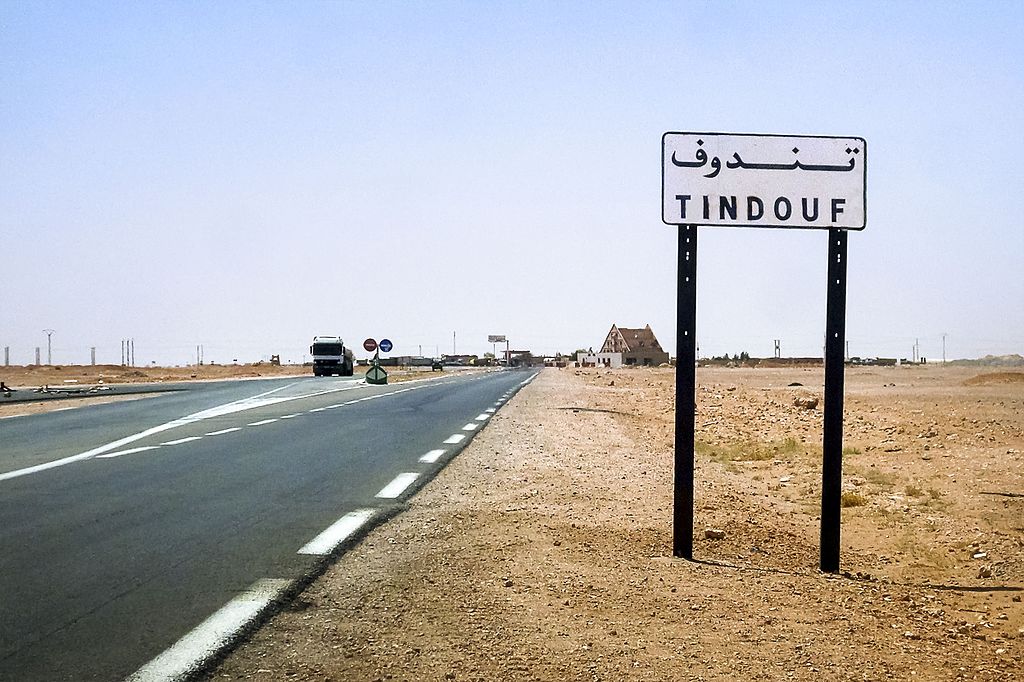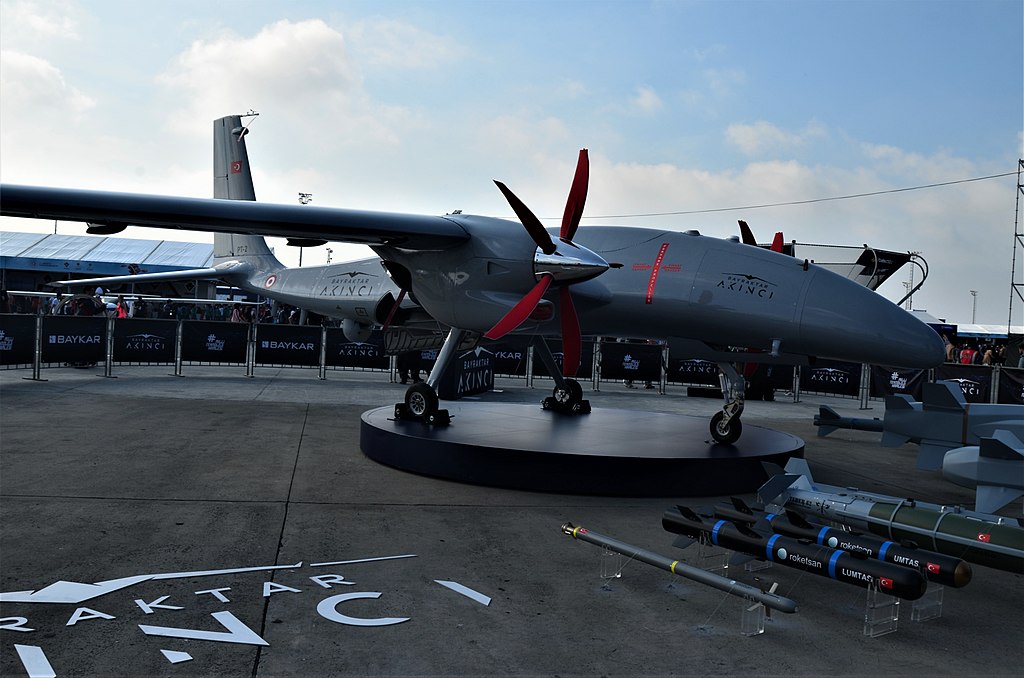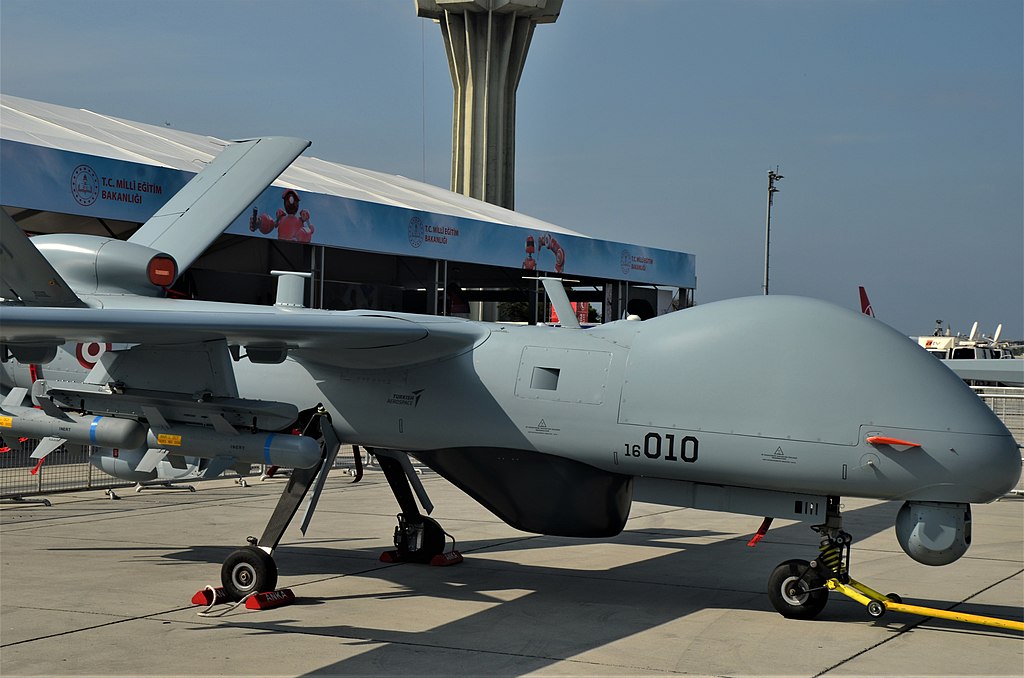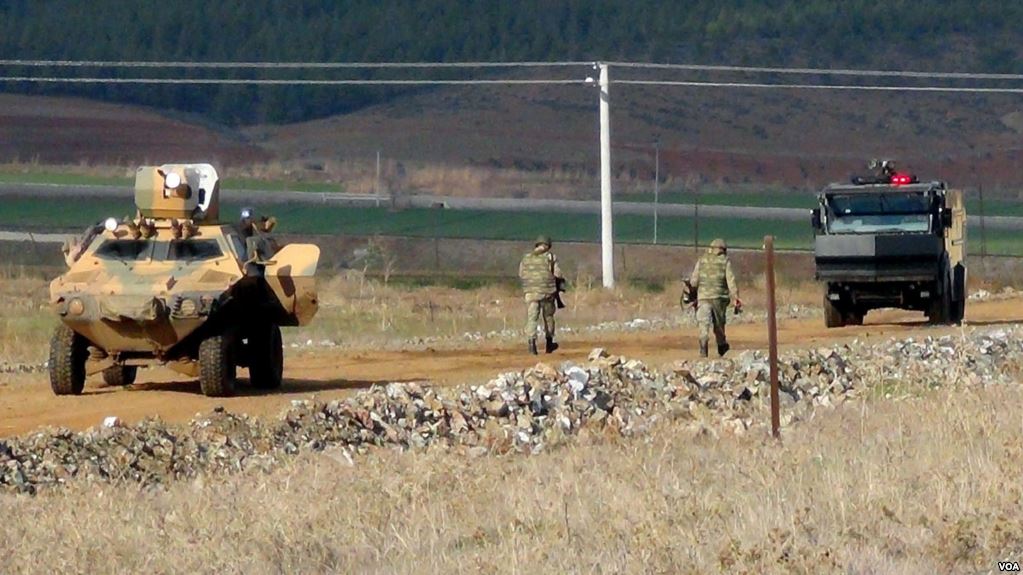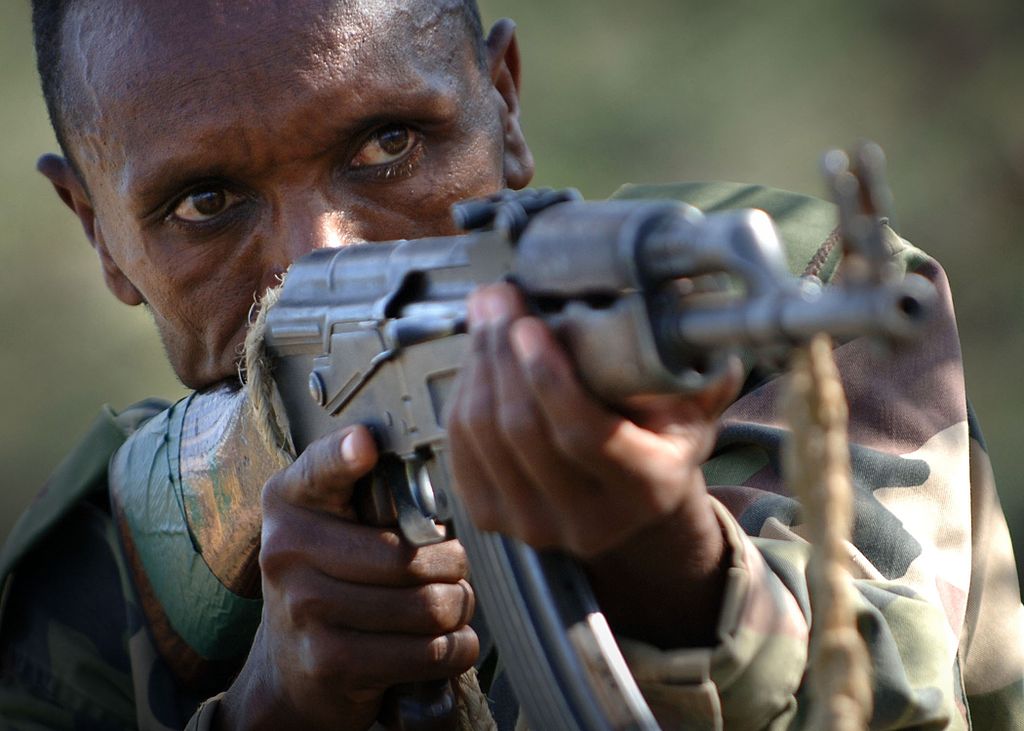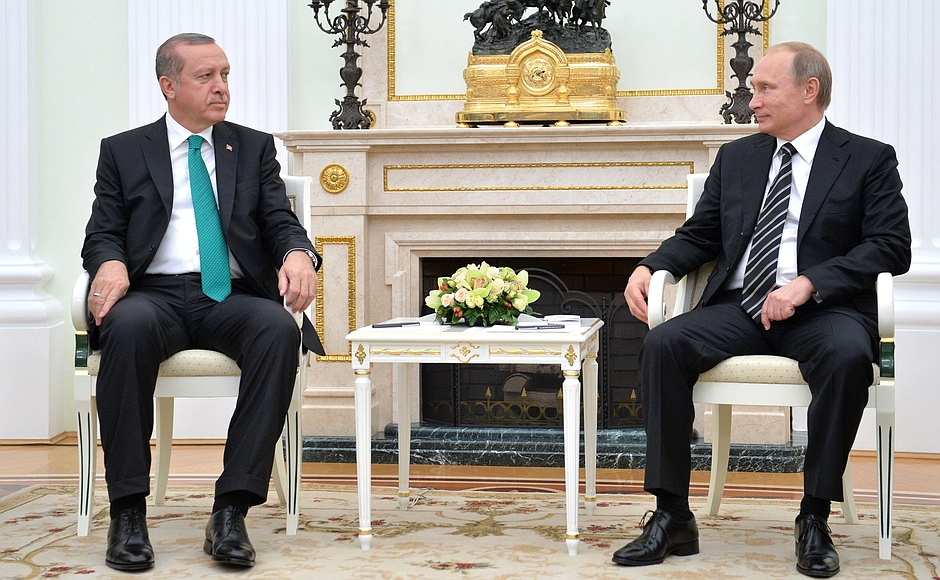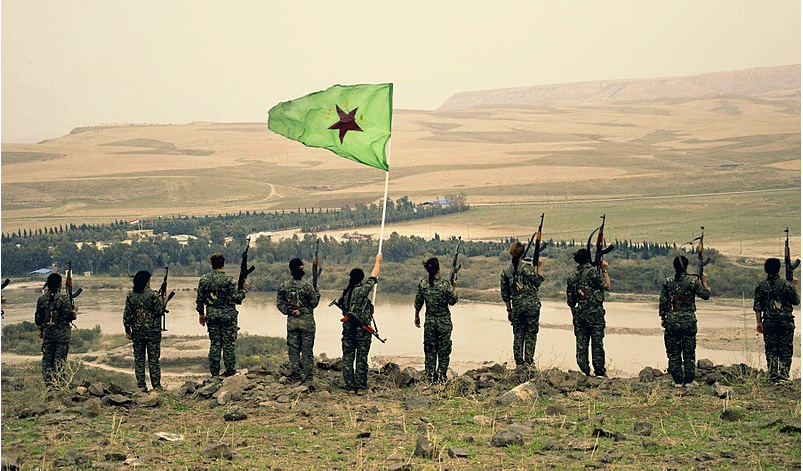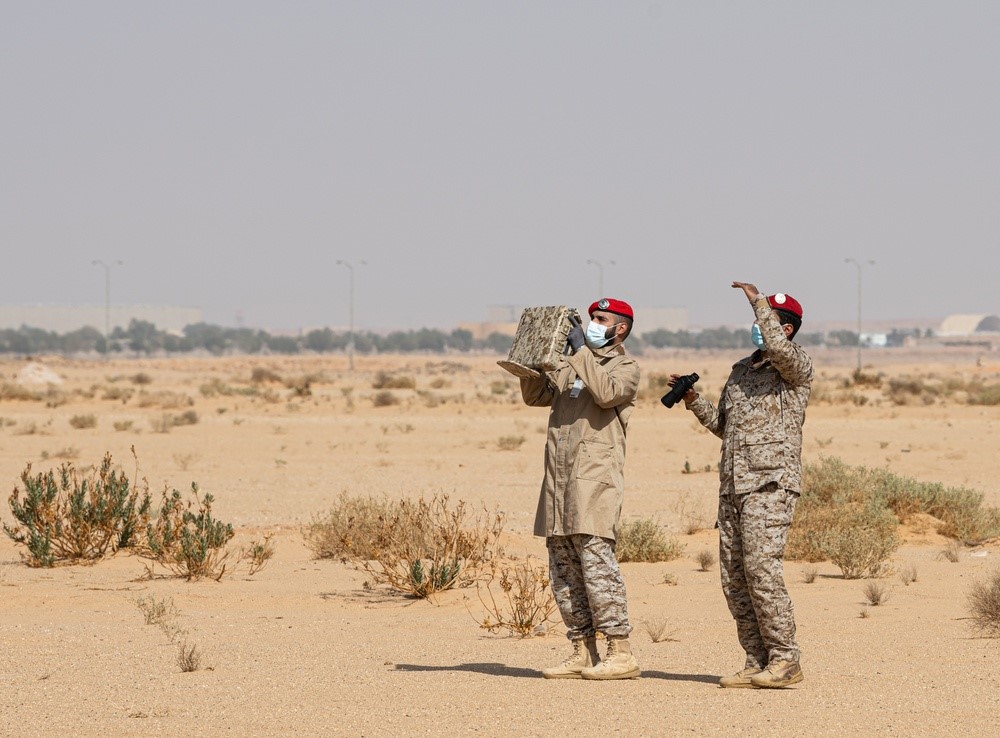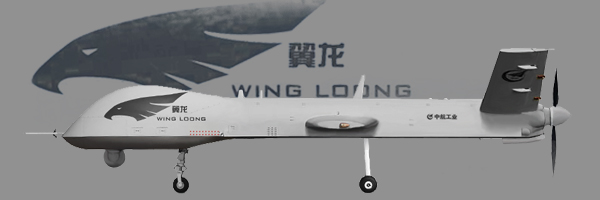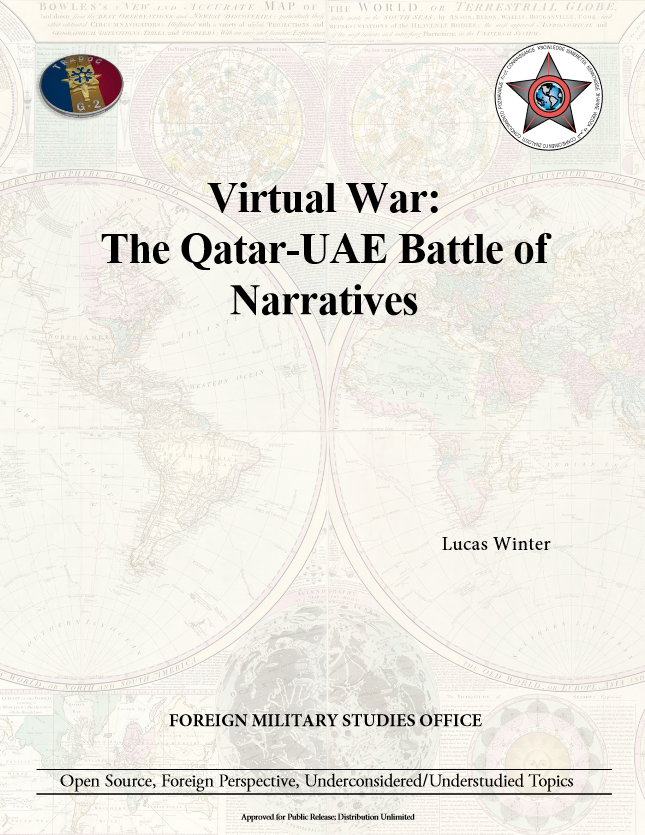Fighters of the YPJ.
“We have good relations with Russia. For the past two years, we have cooperated on the ground within the framework of the [Sochi] agreement. This problem cannot be solved without Russia.” Mazlum Kobane
The accompanying excerpts provide perspectives of Syrian Kurdish leaders about their discussions with the United States and Russia regarding their place in the future of Syria. The passages also highlight the circumstances they face on the ground, particularly in light of Turkish threats of another operation and demands by the Syrian regime to relinquish their quest for autonomy. As the final passage summarizes, the Syrian Kurds are “trying to achieve a status for themselves in the future of Syria…by following a remarkable policy of balance between Washington and Moscow.”
The first excerpted article, an interview with Mazlum Kobane, commander-in-chief of the Syrian Democratic Forces (SDF), featured in security news site Al-Monitor, covers a range of issues impacting Syrian Kurdish territory. The first issue is Turkey’s threats to launch another operation into Syria. Kobane states that without consent from Russia or the United States, Turkey is unlikely to carry out such an operation because both countries have given the Kurds assurances. Regardless, he takes Turkish threats seriously and prepares his forces accordingly. Another topic is worsening economic conditions and increasing unemployment in Kurdish-controlled territory. He claims this diminishes the authority of their de facto administration and that ISIS takes advantage of this to regain ground there. Therefore, he says, an effective counterterrorism strategy requires addressing the economic situation of the region. As such, he wants the United States to exempt the Kurdish region from Caesar sanctions to alleviate the declining economy.
With respect to the negotiations with the Syrian regime, Kobane says that no serious negotiations have taken place so far, although they have engaged in some initial talks. Kobane expects that Russia will be more proactive in its negotiations with the Syrian regime and play a determinative role. Kobane notes the SDF’s good relations with Russia and ongoing cooperation on the ground within the framework of the Sochi agreement. He expects Russia will play a critical role in Syrian Kurdish negotiations with the Syrian regime. To that end, on 23 November 2021, after receiving an official invitation from Russian officials, a Kurdish delegation met with Russian Foreign Minister Sergey Lavrov in Moscow. According to the second excerpt, a press release by the Syrian Democratic Council, Russian officials reiterated their support and encouragement for Kurdish dialogue with the Syrian regime and discussed possible political solutions to end the Syrian conflict.
The third article from pro-government Turkish newspaper Hürriyet, analyzes the aforementioned Kurdish delegation’s visit to Moscow. The article highlights that the statement from Russian officials referenced the territorial integrity of Syria and the protection of the rights of all ethnic and sectarian groups. The article also points out that Lavrov personally welcomed the Kurdish delegation to highlight to the international community Russia’s attempt to broker a solution between the Syrian regime and the Kurds. The author of the article claims this role will likely push the Kurds towards Russia even though Kurdish officials have been trying to strike a balance in their relations with the United States and Russia as they try to maintain their current autonomous status and advance their rights within Syria.
Source:
Amberin Zaman,“Syrian Kurdish commander says Russia opposes further Turkish land grabs” al-Monitor (a globally read security news site with regionally based reporting),09 November 2021. https://www.al-monitor.com/originals/2021/11/syria-kurdish-commander-assured-washington-turkey-wont-invade-again
Al-Monitor: Turkish President Recep Tayyip Erdogan is making fresh threats to launch another military operation against the Syrian Democratic Forces in northeast Syria, and daily there is speculation in the media as to where and when yet another Turkish invasion might occur. Do you believe that Erdogan will follow on his threats? He’s certainly always done so in the past.
Mazlum Kobane: Erdogan has always sought the support of international actors before embarking on a military intervention here. He’s made threats and continues to make threats. He insists he will intervene and will continue to insist. In doing so he is looking to prepare the ground for an operation. However, the existing situation in northeast Syria is different now. The balances have shifted. In the past instances, there were no binding agreements between Turkey and the international powers…But now there are two agreements in place… In my view, unless Turkey gets the approval of either Russia or the United States, Erdogan cannot take such a step. And as far as I am aware there is no such approval.
Al-Monitor: Have Russia and the United States provided you with such guarantees?
Mazlum Kobane: Yes. The United States has given us such assurances. They were relayed to us officially. The United States said they were opposed to, and would not accept, any attack by Turkey against us. The US officials we spoke to… informed us that during the last meeting between Erdogan and President Joe Biden [on the sidelines of the G20 summit in Rome] that Erdogan was told that the United States would not accept any attack against us. The Russians also told us that they had not made any deals with Turkey…
…Like I said, a Turkish attack does not seem likely in the current circumstances. Besides, the Russians told us that they had told the Turks that they would not accept an attack against us. However, they are unable to determine what Turkish-backed forces might do. They said they would not accept an attack by them either. But it remains to be seen what will happen in practice, on the ground.
Al-Monitor: Are you saying they are not standing as firmly against Turkey as the Americans are?
Mazlum Kobane: No not at all. This is a very critical point and requires proper clarification. The Russians said there was no question of them allowing Turkey to attack but that Turkish-supported rebel groups might attack us without Turkey’s authorization…
Al-Monitor: Economic conditions in Rojava are getting harder by the day. On the one hand, there are the embargos imposed by Turkey and sanctions imposed by the United States on the Assad regime. On the other hand, there is the COVID-19 pandemic, one of the most severe droughts in decades and Turkey’s continued suppression of water along with its threats of an attack. Can these factors give the Islamic State a new lease of life?
Mazlum Kobane: DAESH [the Arabic acronym for the Islamic State] is active all across Syria. And these unfavorable economic conditions are impacting our struggle against DAESH. Its ability to regain ground is increasingly linked to economic conditions in Syria. There are way too many unemployed people. There is widespread poverty. All such factors diminish the authority of our administration. DAESH takes advantage of this. Therefore, the international coalition forces and all powers fighting against terrorism must take immediate steps to address the economic situation here. Bolstering the economy has become one of the pillars of combatting terrorism. We as the Syrian Democratic Forces say this openly. If we are to fight DAESH effectively we need to prioritize the economy.
…Our demand is that the whole of North and East Syria be exempted from the United States’ Caesar sanctions…
Mazlum Kobane: So far nobody has gone to Damascus for any kind of negotiations. And so far there have been no serious negotiations with Damascus. There have been some contacts but none of those meetings evolved into negotiations.
Al-Monitor: Why not?
Mazlum Kobane: Damascus is not ready for this. However much they claim that there will be no return to the pre-2011 era their mentality remains unchanged. They need to be pressured. Plus, there’s an issue of trust, particularly for Damascus.
Al-Monitor: Are they telling you to sever your ties with the United States?
Mazlum Kobane: Not exactly. They are telling us, “We do not want a state within a state. We do not want an army within an army.”… Our project is autonomy and we are implementing it at this time. However, they want guarantees from us with regard to the aforementioned concerns. Severing our ties with the Americans is not their precondition…
Al-Monitor: Are the Russians sincere in their mediations efforts? Or do they simply want you to capitulate so they can get the lion’s share of the oil pie from the regime as some claim?
Mazlum Kobane: We have good relations with Russia. For the past two years, we have cooperated on the ground within the framework of the [Sochi] agreement. This problem cannot be solved without Russia. I believe Russia could be more proactive and apply more pressure on the regime.
Source: “At an official invitation, “SDC” in Moscow to discuss the Syrian issue and bilateral relations,” m-syria-d.com, (Syrian Democratic Council Official website),23 November 2021. https://m-syria-d.com/en/?p=3302
The meeting was positive, as the two sides discussed the Syrian situation in general and methods to find a comprehensive settlement…
The meeting focused on many common points, the most important of which are the Syrian-Syrian Kurdish dialogue and Moscow’s support and encouragement for dialogue between the “SDC” and the authority in Damascus.
The two sides also talked about the need to work seriously for the participation of “SDC” in the political process and to represent it in a balanced manner in the international paths as a main and active party in the Syrian scene.
Source: Sedat Ergin,“Rusya Suriye’de YPG/PYD üzerinden özerkliğe kapıyı aralıyor (Russia opens the door to autonomy in Syria through YPG/PYD,” Hürriyet (a pro-government Turkish newspaper),26 November 2021. https://www.hurriyet.com.tr/yazarlar/sedat-ergin/rusya-suriyede-ypg-pyd-uzerinden-ozerklige-kapiyi-araliyor-41947615
As it can be seen, the Syrian Kurds are trying to achieve a status for themselves in the future of Syria, where they aim to have advanced rights, by following a remarkable policy of balance between Washington and Moscow, keeping the doors of negotiations with both sides open.
Image Information:
Image: Fighters of the YPJ.
Source: Jakob Reimann, via Wikimedia, https://commons.wikimedia.org/wiki/File:Fighters_of_the_YPJ_stand_atop_a_hill_with_their_flag.jpg, Flickr images reviewed by FlickreviewR 2 | Flickr images missing SDC source of file | Flickr images missing SDC creator |
Attribution: CC-BY-2.0
